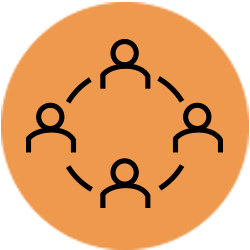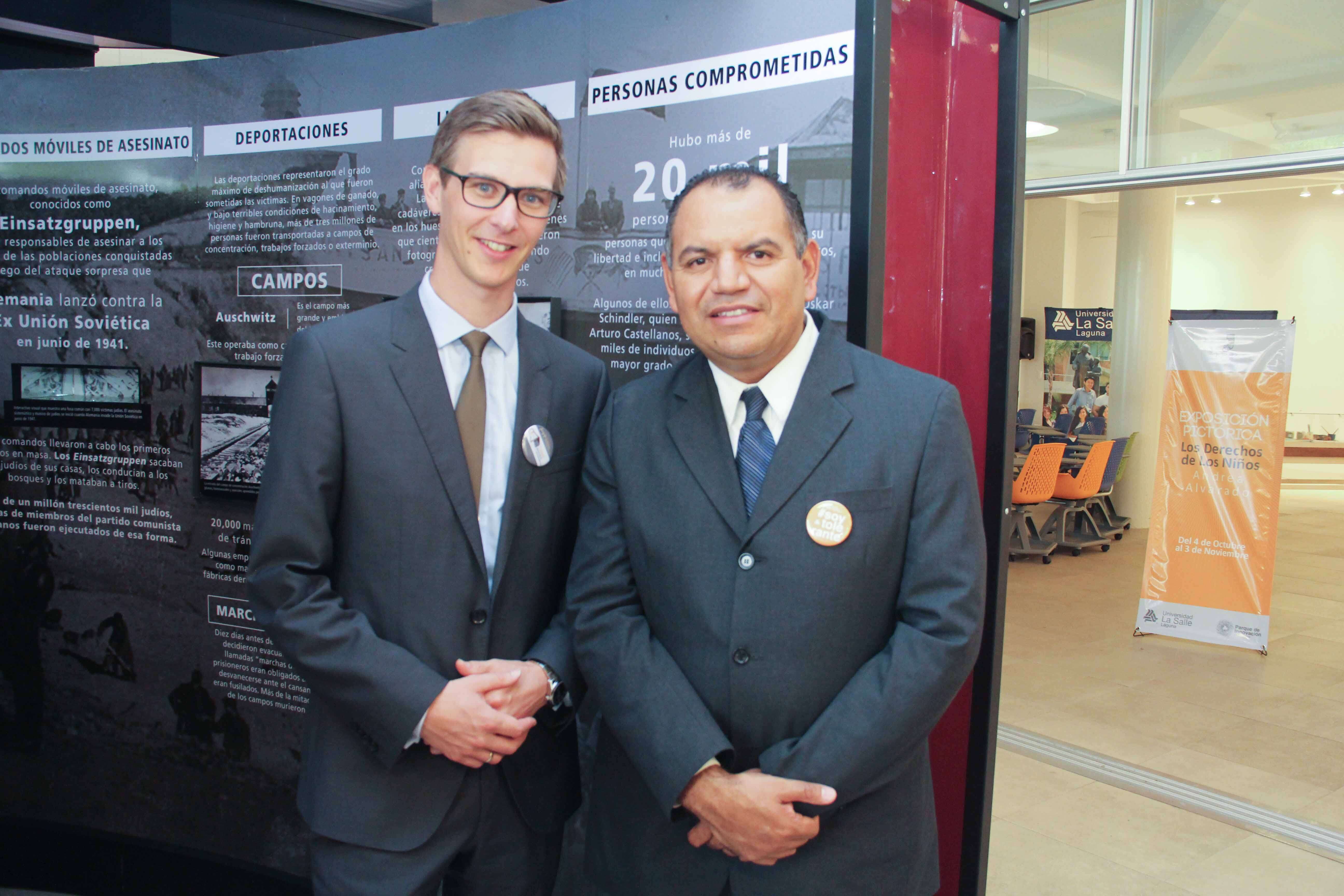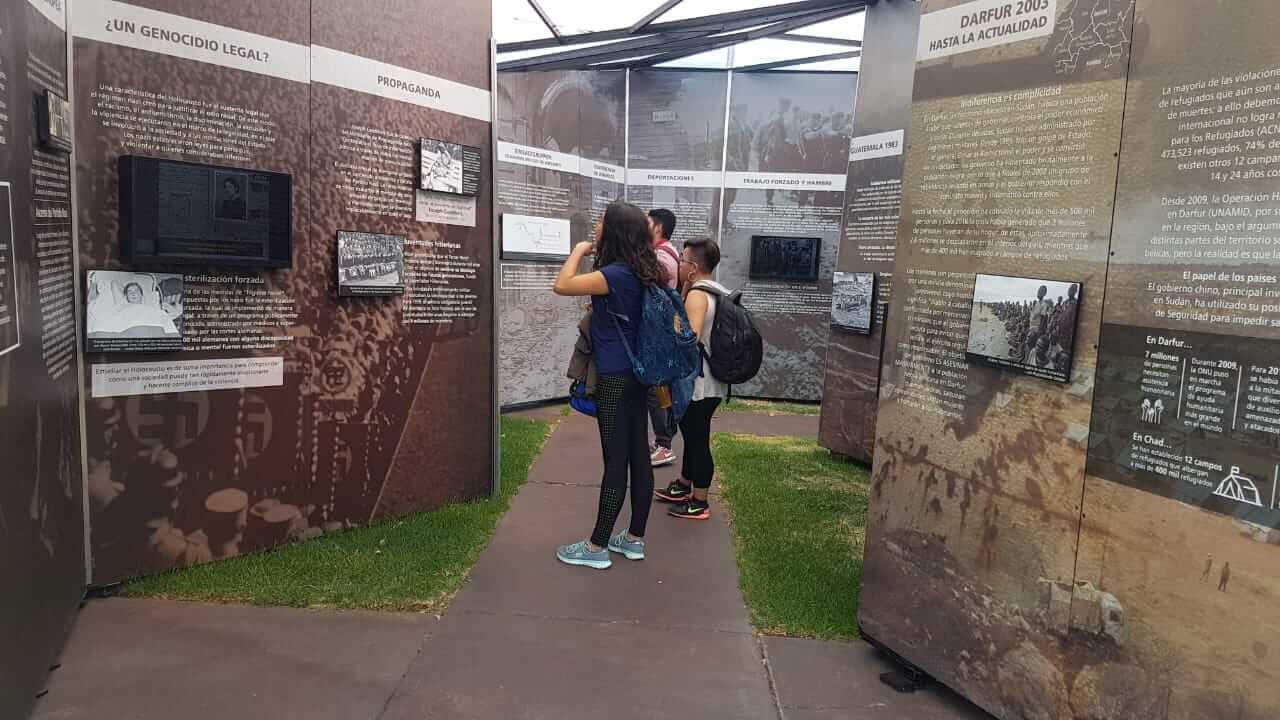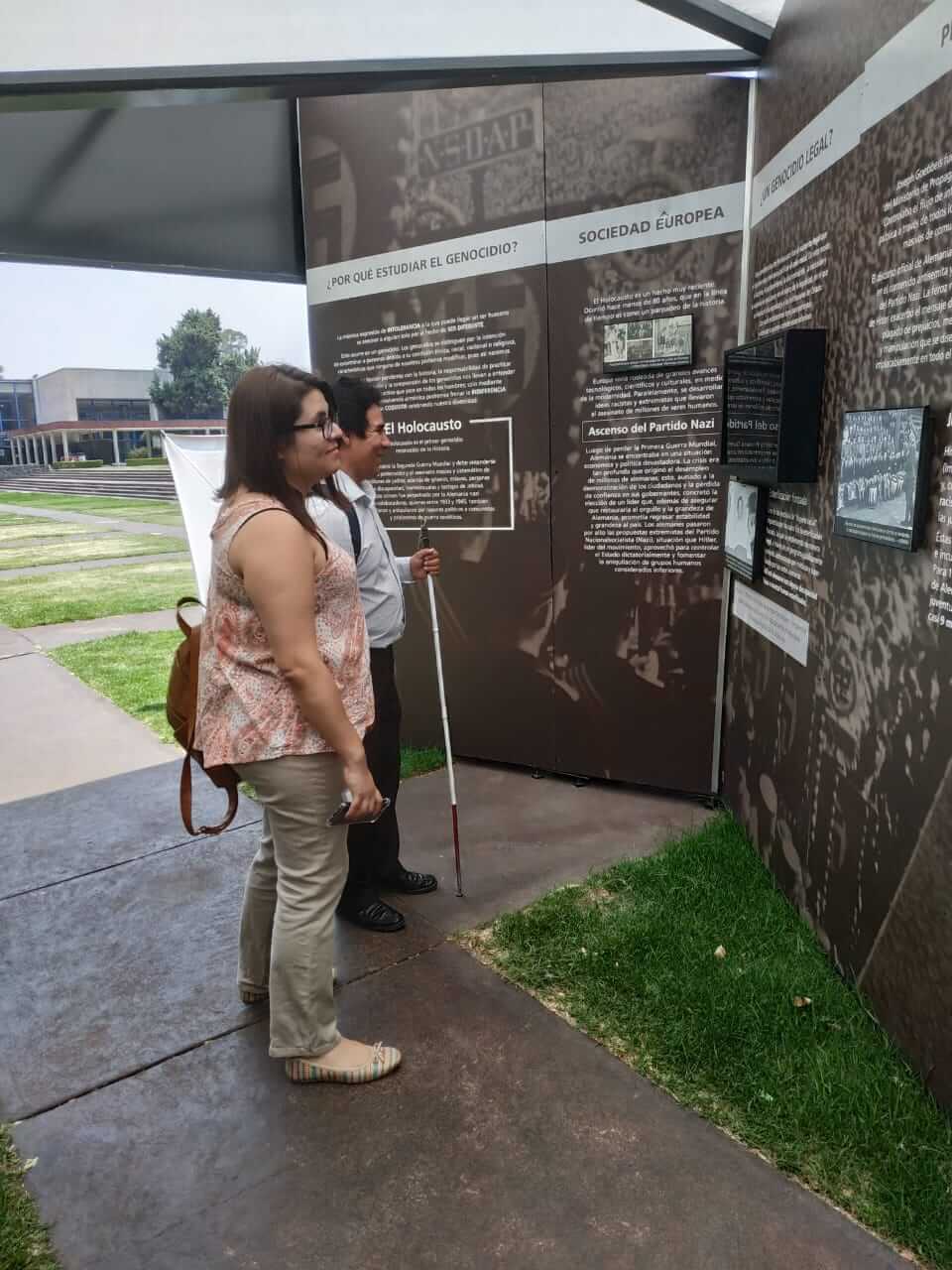


Esta instalación es posible gracias al apoyo del gobierno de la República Federal de Alemania a través de su Embajada en la Ciudad de México.
The structure was made possible thanks to the support of the Federal Republic of Germany through its Embassy in Mexico City.

Difundir el conocimiento sobre el Holocausto y otros genocidios como formas extremas de violencia.
To spread knowledge about the Holocaust and other genocides as mankind’s extreme forms of violence.
Pacificar sociedades de los Derechos Humanos y promover su desarrollo saludable.
To pacify societies by teaching Human Rights, in order to promote a healthy development of civilizations.
Entender la tolerancia como una virtud que fomenta la aceptación de los Derechos Humanos.
To understand tolerance as a virtue that makes Human Rights comprehensible and acceptance achievable.
Prevenir crisis sociales y conciliar el presente con el pasado para incentivar el diálogo.
To prevent social crises and to reconcile the present with the past by encouraging dialogue.
Practicar la tolerancia como un método para conseguir la democracia en nuestra sociedad actual.
To practice tolerance as a method to achieve democracy in our current environment.
Concientizar sobre el feminicidio por medio de la prevención de la discriminación contra las mujeres.
To create awareness on feminicide and gender violence by preventing discrimination towards women.

175,159
Visitas registradas
Registered visits

39
Estados visitados
Visited states

9,117
Asistentes a conferencias
Lectures attendees

79
Conferencias impartidas
Lectures delivered

1,407
Voluntarios y profesores capacitados
Trained volunteers and teachers

103
Instituciones visitadas
Visited Institutions

El Túnel cumple con el objetivo de dar a conocer distintos genocidios e información sobre los derechos humanos; además de que fomenta una cultura de paz a partir de la práctica de la tolerancia hacia nuestros semejantes. También, la conferencia del Mtro. Bruno Chávez dejó una gran impresión entre los asistentes por la manera en la que abordó cada uno de los temas que se contemplan en el Túnel. Estoy satifecho con los resultados que se lograron en nuestra universidad
The Tunnel met the goal of transmitting information about several genocides and human rights. It also promotes a peace culture from tolerance amongst all. The conference given by Bruno Chávez gave a great impression to the audience for how he addressed the subjects from the Tunnel. I am really happy with the results achieved in our university.

El Túnel es una herramienta que aborda temas que en la sociedad actual nos competen, pues desde el estudio del genocidio podemos comprender la máxima expresión de la intolerancia. Como estudiante de Trabajo Social me parece muy interesante la manera en la que se aborda el respeto a los derechos humanos así como las consecuencias de no respetarlos. Por ejemplo, la situación de la violencia feminicida y la trasgresión a los derechos humanos de quienes son diferentes.
The Tunnel is a great tool that addresses subjects important to all of us. From studying a genocide, we can understand intolerance. As a Social Work student, I found really interesting how human rights respect is addressed and the consequences of disrespecting them. For example, the feminicides and the human rights violation of those who are different.

Honestamente, el Túnel me gustó muchísimo, creo que abarca temas históricos y sociales como el genocidio, y la discriminación de género, este último es un tema cotidiano en nuestro entorno que puede llevar al feminicidio. Considero que la información que se presenta es sumamente relevante y que todos deberían visitar el Túnel para reflexionar sobre los terribles alcances de la violencia y la discriminación para actuar en consecuencia.
I honestly enjoyed the Tunnel really much, I think this addresses historical and social subjects like genocide, and discrimination, which is current in our society and could lead to feminicide. I think the information is relevant and all should visit the Tunnel to reflect on the violence and discrimination scope and to act in consequence.